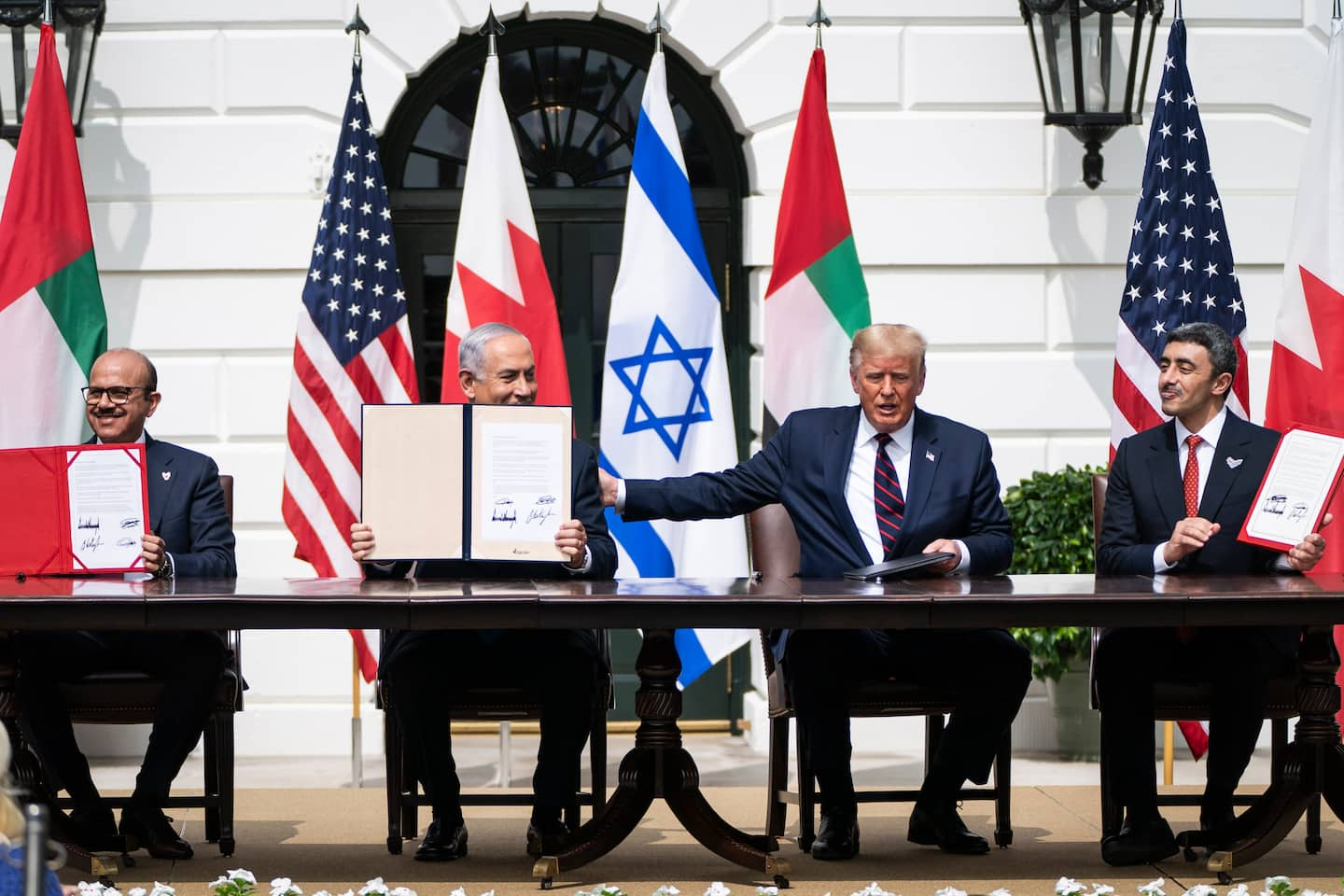The Biden administration could derail the Abraham Accords. It mustn’t.

These breakthrough agreements between Israel and the UAE, Bahrain, Sudan and Morocco could mean security for Israel and a broader regional stability that has eluded the Middle East since the fall of the Ottoman Empire. But they also represent a fundamental alignment of interests between the United States and all its allies in the region against its regional adversary, the deadly Islamic Republic of Iran and its proxies.
The accords were largely the result of the political courage and geopolitical vision of the UAE’s Crown Prince Mohammed bin Zayed, or “MBZ,” as he is known. Without exception, every military and political leader I have interviewed over the past two decades has hailed the UAE especially as the critical Arab partner for peace and stability in the Middle East. In a presentation at the Nixon Library last year, former defense secretary Gen. Jim Mattis fondly referred to the UAE as “Little Sparta,” and every student of the region knows the capabilities of its special forces, which have long served alongside U.S. troops in Afghanistan, and its air force, which routinely trains with the finest U.S. aviators during our “Red Flag” exercises at the Nevada Test and Training Range.
In 2011, the UAE committed six F-16s, among other fighter aircraft, to participate in patrols that enforced the United Nations-imposed no-fly zone over Libya. Some of those planes fly over Israel en route to their station. The cooperation with Israel and the UAE has been growing for years and flowered in the Abraham Accords.
When Bahrain joined the accords, experienced observers knew that the Saudi royal family had signed on as well — even if it refused to do so publicly. This amounts to a seismic change in the region that, like a California temblor toppling a building, just can’t be missed.
Still, the extent of this geopolitical earthquake has eluded otherwise keen observers of the Middle East. Trump Derangement Syndrome, perhaps? Shake off that debilitating condition. These are changes that empower the new Biden team, as well as providing a genuine legacy for the Trump-era diplomats who helped forge them. Diplomacy, not armed conflict, can now take center stage in the Middle East if it isn’t reflexively rejected for being linked to the Trump years.
Critical to the accords was a side agreement in which the United States would sell the UAE 50 F-35 fighters. The contracts are signed. Congress refused to block the sale. The deal is done.
Which brings us back to the Biden administration’s announcement to “review” the sale. Now, this may just be a shrewd move by the new president and Secretary of State Antony Blinken that would lead to their blessing of the enormous changes set afoot by the accords. The veterans of Middle East negotiating tables know that as Arab militaries stand up, U.S. forces can stand down and our diplomats can assume greater roles. They also know that Israel has no objection to the sale (we would know if that were the case). The United States guarantees Israel a “qualitative military edge” in the region, and the UAE’s F-35s do not compromise that commitment. Indeed, they add to Israeli security.
The Iranians are not happy that the UAE may prove to be our wingman in any future conflict with the mullahs in Tehran. And the Palestinians are upset that their veto over the “peace process” has been overturned, even though it was the op-ed in an Israeli newspaper from Yousef al-Otaiba, UAE’s ambassador to the United States, linking diplomatic progress in region to the end of settlement expansion in Israel-controlled territories, that launched the diplomatic breakthrough. Indeed, as the leadership guard changes among the Palestinians, the suddenly fluid situation in the region may benefit the Palestinians, too. Freed from the obligation to lead a peace process now underway, the Palestinians are empowered to cut the best deal they can with all players recognizing that they no longer green-light or halt negotiations.
The F-35s are in a practical way the crucial glue holding together U.S. interests in the regions. With the jets come training and maintenance — the low-level but high-return partnerships that knit nations together. They also represent a block against China, which is eager to sell its armaments as a means of expanding its access and influence across the world.
Team Biden may have done a wise thing to announce a review of this contract. Now it must do a wiser thing by quickly completing the review, accelerating the sale (and the production lines in Dallas-Fort Worth) and celebrating the Abraham Accords as the game-changer they are.
Read more:






